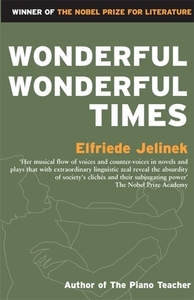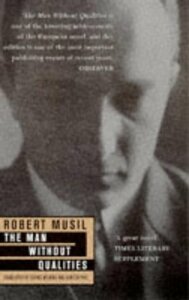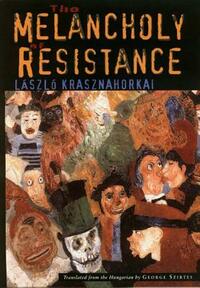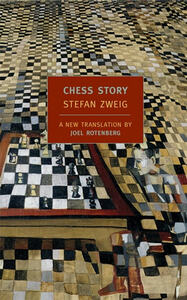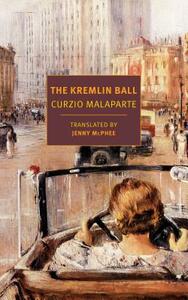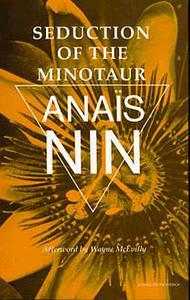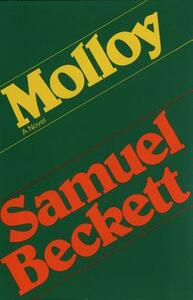Take a photo of a barcode or cover
screen_memory's Reviews (234)
Elfriede Jelinek is twisted. This is why she's been a high if not top priority when I skim bookstore shelves for familiar authors. This is not as jarring as The Piano Teacher (barring this book's finale), but it was wonderful nonetheless.
From the blurb: "...the decaying corpse that is Austria, where everyone has a closet in which to hide their Nazi histories, their sexual perversions, and their hatred of the foreigner. ...Jelinek shows...how the present is corrupted by the crimes of the past."
The novel opens with a senseless beating and robbery perpetrated by three youths nearing young adulthood and a muscular laborer some years their senior, and centers on their exploits thereafter.
Rainer (named after Rilke) is a poet fixated on Camus and his writings on absurdity and meaninglessness; a natural nihilist who believes in nothing. His sister, Anna, uses her body to lure the victims the gang beats and robs, and falls in love and becomes intimate with the laborer, Hans, whose being is purely physical where Rainer's is mental, although he (as well as Rainer), fall in love with the wealthy and privileged blonde Sophia, who, after their spree of robberies, is the first to transgress the established limits imposed by the gang's adherence to beatings and robberies.
Rainer and Anna's father, a paralytic lecherous wretch who lost a leg while serving in the SS, routinely beats and abuses his innocent wife, claiming she is unfaithful despite the fact that he often cruises for young girls, and is something of a hobbyist erotic photographer.
The dynamic between the four friends, as well as that between Rainer, Anna, and their parents, is both compelling and sad. There is not much in the way of filial piety, nor is the gang's friendship in any way enviable. Rather, they all seem an unlikely bunch, although this is what makes their dynamic so interesting. They have little to no respect for society, religion, morals, culture, each other, or themselves. Rainer's interest in Camus reveals what quickly becomes obvious: they are all disengaged and apathetic; each of them a Mersault.
To leave the finale sufficiently shadowed, certain themes and fixations come to a head in the very last pages of the book, culminating in an act of violence that is as senseless as it is gruesome, though it is the logical consequence of the moral and existential attitude that led to its occurrence.
From the blurb: "...the decaying corpse that is Austria, where everyone has a closet in which to hide their Nazi histories, their sexual perversions, and their hatred of the foreigner. ...Jelinek shows...how the present is corrupted by the crimes of the past."
The novel opens with a senseless beating and robbery perpetrated by three youths nearing young adulthood and a muscular laborer some years their senior, and centers on their exploits thereafter.
Rainer (named after Rilke) is a poet fixated on Camus and his writings on absurdity and meaninglessness; a natural nihilist who believes in nothing. His sister, Anna, uses her body to lure the victims the gang beats and robs, and falls in love and becomes intimate with the laborer, Hans, whose being is purely physical where Rainer's is mental, although he (as well as Rainer), fall in love with the wealthy and privileged blonde Sophia, who, after their spree of robberies, is the first to transgress the established limits imposed by the gang's adherence to beatings and robberies.
Rainer and Anna's father, a paralytic lecherous wretch who lost a leg while serving in the SS, routinely beats and abuses his innocent wife, claiming she is unfaithful despite the fact that he often cruises for young girls, and is something of a hobbyist erotic photographer.
The dynamic between the four friends, as well as that between Rainer, Anna, and their parents, is both compelling and sad. There is not much in the way of filial piety, nor is the gang's friendship in any way enviable. Rather, they all seem an unlikely bunch, although this is what makes their dynamic so interesting. They have little to no respect for society, religion, morals, culture, each other, or themselves. Rainer's interest in Camus reveals what quickly becomes obvious: they are all disengaged and apathetic; each of them a Mersault.
To leave the finale sufficiently shadowed, certain themes and fixations come to a head in the very last pages of the book, culminating in an act of violence that is as senseless as it is gruesome, though it is the logical consequence of the moral and existential attitude that led to its occurrence.
Another return to an older favorite. This book, Houellebecq's second, is a staggering leap above and beyond what the author suggested himself capable of in his first novel, Whatever. Such beautiful and moving tragedy emanates from the pages; seriously moving in such a sad way. Houellebecq's familiar focus here is the fallout of the aged, wasted and unloved bodies of those who were so *liberated* in the sexual revolution of the 60's, and the children who grew up unloved, neglected, or resigned to other guardians after the unplanned accident of their birth.
Houllebecq's works are not for the unexamined ideologue who views unmitigated freedom and so-called liberation as a necessary, inviolable right, or a necessary practice. There are terrible downsides to the limitation of freedom, certainly, although there are peculiar downsides to unmitigated freedom as well. Houellebecq hammers this point home in a tragically poignant way. With that said, however, Houellebecq is no polemicist. His work is nuanced and, to or against his credit depending who is asked, oozing with a tragic humanism. Houellebecq you can tell wishes beyond reason to find humanity as worthy of redemption, though he seems to have resigned himself to the futility of his wishing. His is a sort of cynical idealism; a humanism punctuated by a weary sigh.
Two half brothers sharing the same mother meet many years later, both of them given up by their mother (Houellebecq, too, was abandoned by his own hippie mother) so she could pursue her dream of spiritual enlightenment and untrammeled sexual freedom.
Bruno is a loudmouthed, overweight and largely impotent man who, for most of the novel, staggers through one failed or botched encounter after another, going so far as to attend sexual retreats only to face further rejection.
Michel is emotionally sterile and interested in science above all, resigning his first possible relationship to obsolescence only to meet the girl he loved after twenty years of silence....
Bruno and Michel enter into relationships in their middle ages, facing impotence, sterility, the approaching infertility of their partners, and the advancement of certain medical conditions that threaten the life they've squandered in pursuit of sexual pleasure; a life that has led them to such dreary ends, a life of dissatisfaction, a life of estrangement from their children, a life where they will inevitably die alone - "Both of them knew that this would be their last human relationship, and this feeling lacerated every moment they spent together."
Having lived a life entirely without joy or pleasure, and his reformed relationship coming to no good end, Michel devotes himself to his scientific research at the end of his life, making a breakthrough that will radically alter the course of human evolution and the human experience; a breakthrough that leads to the premise of Houellebecq's later The Possibility of an Island, his greatest novel.
Houllebecq's works are not for the unexamined ideologue who views unmitigated freedom and so-called liberation as a necessary, inviolable right, or a necessary practice. There are terrible downsides to the limitation of freedom, certainly, although there are peculiar downsides to unmitigated freedom as well. Houellebecq hammers this point home in a tragically poignant way. With that said, however, Houellebecq is no polemicist. His work is nuanced and, to or against his credit depending who is asked, oozing with a tragic humanism. Houellebecq you can tell wishes beyond reason to find humanity as worthy of redemption, though he seems to have resigned himself to the futility of his wishing. His is a sort of cynical idealism; a humanism punctuated by a weary sigh.
Two half brothers sharing the same mother meet many years later, both of them given up by their mother (Houellebecq, too, was abandoned by his own hippie mother) so she could pursue her dream of spiritual enlightenment and untrammeled sexual freedom.
Bruno is a loudmouthed, overweight and largely impotent man who, for most of the novel, staggers through one failed or botched encounter after another, going so far as to attend sexual retreats only to face further rejection.
Michel is emotionally sterile and interested in science above all, resigning his first possible relationship to obsolescence only to meet the girl he loved after twenty years of silence....
Bruno and Michel enter into relationships in their middle ages, facing impotence, sterility, the approaching infertility of their partners, and the advancement of certain medical conditions that threaten the life they've squandered in pursuit of sexual pleasure; a life that has led them to such dreary ends, a life of dissatisfaction, a life of estrangement from their children, a life where they will inevitably die alone - "Both of them knew that this would be their last human relationship, and this feeling lacerated every moment they spent together."
Having lived a life entirely without joy or pleasure, and his reformed relationship coming to no good end, Michel devotes himself to his scientific research at the end of his life, making a breakthrough that will radically alter the course of human evolution and the human experience; a breakthrough that leads to the premise of Houellebecq's later The Possibility of an Island, his greatest novel.
My second read-through of the unparalleled novel without end (a remark both on its length and the fact that Musil died before its completion - if such a thing were possible), The Man Without Qualities - undeniably my favorite novel and one of my most significant literary influences.
Musil's style is like no other; in some instances florid, in others exacting. His writing is discursive and heavily essayistic - many passages and certainly entire chapters could be cut from the book and stand alone as works of philosophy or theory. While the prose is not uncertain of itself, it, in some way, reflects the push-pull of the Vienna Circle's logical positivism with metaphysics; with what can be deduced with mathematical/logical certainty, and what of the innumerable aspects of the human experience and of the world remain incapable of being so much as touched by a positivist analysis or capable of being explained by science (a chapter in which Ulrich does nothing but work through an exhaustive analysis of emotions spanning some 20-30 pages only to arrive at an indeterminate conclusion as to their origin perhaps most heavily illustrates this).
Additionally, one can intuit a sort of Hegelian model in the double structure of many if not all of the novel's ideas which often if not always become negated by their opposite, although there is no synthesis to be seen. It stands, then, that The Man Without Qualities, to some degree, could be viewed as a record of a Europe in intellectual turmoil; a Europe with no evident sense of direction forward; a Europe incapable of reconciling itself with moral relativism (a concept which is explicitly embodied by the murderer Moosbrugger).
This lack of resolution underpins the entire novel. Much like the novel did not nor could be brought to a definitive end, neither do any of the concepts or ideas presented within the novel ever get brought to a substantial conclusion.
The plot itself budges not an inch forward throughout all of the 1,200+ pages of the three published volumes. The Parallel Campaign as its called, of which much of Austria's state officials and intelligentsia are a part, is formed to discover one grand idea to unify Austria, but while their mission statements might change (one of which calls for action now - an absurd demand given that what action must come next never becomes any more clear), the futility of the campaign's premise does not.
Indeed, the title itself, The Man Without Qualities, also the nickname of the main character, Ulrich, is ironic; Ulrich possesses numerous qualities, so many that he is compared to a chromometer, a device that displays all colors so quickly that they inevitably merge into the unified absence of color, an unwavering oscillating white. He is something of a mathematician (though he gives up his practice for years), a gymnast, a womanizer, an intellectual, and so on, but none of these qualities lend themselves to anything greater than some indeterminate patchwork of a person; a man who stands for nothing and accomplishes little; the negation of a man; a man without qualities.
This book marked an ideational/artistic rebirth for me; so important and vital has this single novel become to my own literary practice and engagement. Musil has defined the benchmark for the novel par excellence in my mind. He is widely under-read, however - almost criminally so. You will not often see Musil mentioned alongside other modernists like the fart-fucking Joyce, although the titanic scope of his novel, its language and style so incredibly unlike the flatulent language of such annoyances as Ulysses, is perhaps comparable only to Proust's.
A book so rich and dense with ideas is naturally capable of gradually unraveling by degrees with each reading (as many undiscovered or forgotten ideas and their intersections, or details, were re/discovered through this last reading), as I suppose any sublime novel is capable of, and so, inspired by an ironic remark by Ulrich's sister that, rather than hailing in an Austrian Year, they should hail in an Ulrich Year, I have decided to seek to continue a tradition of re-reading this novel every August as representative less of my birth month than my figurative rebirth following my first reading of TMWQ. Therefore, though it sounds as idiotic as it is a matter of much seriousness, the next of hopefully many Augusts to follow will see to my celebration of the anniversary of Ulrich Month.
Musil's style is like no other; in some instances florid, in others exacting. His writing is discursive and heavily essayistic - many passages and certainly entire chapters could be cut from the book and stand alone as works of philosophy or theory. While the prose is not uncertain of itself, it, in some way, reflects the push-pull of the Vienna Circle's logical positivism with metaphysics; with what can be deduced with mathematical/logical certainty, and what of the innumerable aspects of the human experience and of the world remain incapable of being so much as touched by a positivist analysis or capable of being explained by science (a chapter in which Ulrich does nothing but work through an exhaustive analysis of emotions spanning some 20-30 pages only to arrive at an indeterminate conclusion as to their origin perhaps most heavily illustrates this).
Additionally, one can intuit a sort of Hegelian model in the double structure of many if not all of the novel's ideas which often if not always become negated by their opposite, although there is no synthesis to be seen. It stands, then, that The Man Without Qualities, to some degree, could be viewed as a record of a Europe in intellectual turmoil; a Europe with no evident sense of direction forward; a Europe incapable of reconciling itself with moral relativism (a concept which is explicitly embodied by the murderer Moosbrugger).
This lack of resolution underpins the entire novel. Much like the novel did not nor could be brought to a definitive end, neither do any of the concepts or ideas presented within the novel ever get brought to a substantial conclusion.
The plot itself budges not an inch forward throughout all of the 1,200+ pages of the three published volumes. The Parallel Campaign as its called, of which much of Austria's state officials and intelligentsia are a part, is formed to discover one grand idea to unify Austria, but while their mission statements might change (one of which calls for action now - an absurd demand given that what action must come next never becomes any more clear), the futility of the campaign's premise does not.
Indeed, the title itself, The Man Without Qualities, also the nickname of the main character, Ulrich, is ironic; Ulrich possesses numerous qualities, so many that he is compared to a chromometer, a device that displays all colors so quickly that they inevitably merge into the unified absence of color, an unwavering oscillating white. He is something of a mathematician (though he gives up his practice for years), a gymnast, a womanizer, an intellectual, and so on, but none of these qualities lend themselves to anything greater than some indeterminate patchwork of a person; a man who stands for nothing and accomplishes little; the negation of a man; a man without qualities.
This book marked an ideational/artistic rebirth for me; so important and vital has this single novel become to my own literary practice and engagement. Musil has defined the benchmark for the novel par excellence in my mind. He is widely under-read, however - almost criminally so. You will not often see Musil mentioned alongside other modernists like the fart-fucking Joyce, although the titanic scope of his novel, its language and style so incredibly unlike the flatulent language of such annoyances as Ulysses, is perhaps comparable only to Proust's.
A book so rich and dense with ideas is naturally capable of gradually unraveling by degrees with each reading (as many undiscovered or forgotten ideas and their intersections, or details, were re/discovered through this last reading), as I suppose any sublime novel is capable of, and so, inspired by an ironic remark by Ulrich's sister that, rather than hailing in an Austrian Year, they should hail in an Ulrich Year, I have decided to seek to continue a tradition of re-reading this novel every August as representative less of my birth month than my figurative rebirth following my first reading of TMWQ. Therefore, though it sounds as idiotic as it is a matter of much seriousness, the next of hopefully many Augusts to follow will see to my celebration of the anniversary of Ulrich Month.
It becomes increasingly unclear where I stand with Krasznahorkai with every reading. My feed doesn't reflect it, but I believe I've read all of his books aside from Satantango, and, lo and behold, I haven't had much to say on any of them aside from Melancholy now, and this is more of a commentary on my frustration with the elevation of style/prose above all else, I suppose.
I love Krasz from a considerable distance, and this sentiment is echoed regarding Bernhard (whose style is perhaps more exhausting considering his repetition). Pierre Guyotat's Eden seems a seminal work, and I appreciate it as such, and I do admire the conditional nature of a reader's engagement with it - subordinating oneself as submissive, as victim, to Guyotat's language - but, my God, is it difficult to read. The same goes for Goytisolo's style which I have praised on my posts for his books.
I do believe in frustration as a credible aesthetic goal whether through a a sheer lack of plot or via difficult or winding prose (my favorite novel is The Man Without Qualities, for Christ's sake, that stultifying, unfinished novel which assumes the direction of directionlessness, of constant duality and contradiction), there is an understandable element of farce and absurdity to finish a book and say to oneself, "Ah, what wonderful prose...but what the fuck did I just read?"
Krasznahorkai's prose is a windward journey through a labyrinth of language so exhausting that I scarcely remembered what I passed or experienced in my passage (inb4 claims to my ignorance; perhaps a valid claim).
Nabokov said one cannot claim to have read a book until they've read it twice which I'm partially in agreement with, and, in Krasz's case, I am incapable of recalling anything from my initial readings of his books. I suppose where I treat Guyotat and Goytisolo with more lenience than Krasz and Bernhard is the former's strict absence of plot. Whereas the former's works are outright abusive and sadistic (forcing the reader to assume the role of masochist), there is a fundamental story to be told through the latter's frustrating style.
Where do you all rest on this issue? Do I have it backwards, that frustration as an aesthetic goal is more worthwhile when there IS a plot to be advanced through the prose?
I love Krasz from a considerable distance, and this sentiment is echoed regarding Bernhard (whose style is perhaps more exhausting considering his repetition). Pierre Guyotat's Eden seems a seminal work, and I appreciate it as such, and I do admire the conditional nature of a reader's engagement with it - subordinating oneself as submissive, as victim, to Guyotat's language - but, my God, is it difficult to read. The same goes for Goytisolo's style which I have praised on my posts for his books.
I do believe in frustration as a credible aesthetic goal whether through a a sheer lack of plot or via difficult or winding prose (my favorite novel is The Man Without Qualities, for Christ's sake, that stultifying, unfinished novel which assumes the direction of directionlessness, of constant duality and contradiction), there is an understandable element of farce and absurdity to finish a book and say to oneself, "Ah, what wonderful prose...but what the fuck did I just read?"
Krasznahorkai's prose is a windward journey through a labyrinth of language so exhausting that I scarcely remembered what I passed or experienced in my passage (inb4 claims to my ignorance; perhaps a valid claim).
Nabokov said one cannot claim to have read a book until they've read it twice which I'm partially in agreement with, and, in Krasz's case, I am incapable of recalling anything from my initial readings of his books. I suppose where I treat Guyotat and Goytisolo with more lenience than Krasz and Bernhard is the former's strict absence of plot. Whereas the former's works are outright abusive and sadistic (forcing the reader to assume the role of masochist), there is a fundamental story to be told through the latter's frustrating style.
Where do you all rest on this issue? Do I have it backwards, that frustration as an aesthetic goal is more worthwhile when there IS a plot to be advanced through the prose?
My first exposure to Zweig after years of interest and similar years of only ever finding his books with the most garish 'romantic' covers. This particular story's been on my to-read since I first caught wind of Zweig and, my God, was it wonderful.
The use of chess as an allegory or analogy might be one of the most tired tropes in literature, but Zweig makes masterful use of chess as representative of the opposition of self v. world/environment and self v. self.
The narrative shifts between two narrators: the chief narrator of the story, and a character known as Dr. B., an ex-captive who recounts his solitary confinement wherein he developed his mania for chess, having had recourse to nothing to occupy his time aside from a pilfered book of chess tournament games.
Over twenty years have passed since then, when, aboard a cruise ship, he chances upon a chess game occurring between a crowd and a world-renowned chess champion. Noticing the skill evident in his suggestions, the champion challenges him to a game which Dr. B begrudgingly accepts, having not once played a game against anyone other than himself, let alone on a real chessboard.
The chess match is written with such vigor and immediacy that the feverish deliberation and movement of pieces is more possessing than many wartime scenes all culminating in an exhilarating finale.
This chess story, one of mania and obsession, and, if the game of chess is taken as an allegory for Europe itself following WWII, hopelessness, could be construed as indicative of Zweig's attitude toward Europe and life itself that led to his later suicide.
In any case, this story was well worth the wait.
The use of chess as an allegory or analogy might be one of the most tired tropes in literature, but Zweig makes masterful use of chess as representative of the opposition of self v. world/environment and self v. self.
The narrative shifts between two narrators: the chief narrator of the story, and a character known as Dr. B., an ex-captive who recounts his solitary confinement wherein he developed his mania for chess, having had recourse to nothing to occupy his time aside from a pilfered book of chess tournament games.
Over twenty years have passed since then, when, aboard a cruise ship, he chances upon a chess game occurring between a crowd and a world-renowned chess champion. Noticing the skill evident in his suggestions, the champion challenges him to a game which Dr. B begrudgingly accepts, having not once played a game against anyone other than himself, let alone on a real chessboard.
The chess match is written with such vigor and immediacy that the feverish deliberation and movement of pieces is more possessing than many wartime scenes all culminating in an exhilarating finale.
This chess story, one of mania and obsession, and, if the game of chess is taken as an allegory for Europe itself following WWII, hopelessness, could be construed as indicative of Zweig's attitude toward Europe and life itself that led to his later suicide.
In any case, this story was well worth the wait.
I am often sympathetic to those who find themselves on the wrong side of history. Political affiliation means so extraordinarily little to me. My allegiance belongs neither to politics nor to ideology, but to literature above all. I identify not with the mob in their outrage and calls for erasure or censorship, but with Malaparte the ex-fascist, with Hamsun the apologetic advocate of Hitler, and with Ernst Junger and Yukio Mishima despite their nationalism. Renunciation or otherwise is of far less importance to me than to perhaps most others. Again, I am loyal to the republic of letters above all.
Malaparte has become a recent favorite of mine since reading his Kaputt last November, and The Skin a few months ago. His approach to writing could be described as historical, but his style, often bordering on the surreal or the farcical (an obvious influence on Kundera; there are undeniable echoes, for example, of Malaparte in the scenes involving Stalin in Kundera's Festival of Insignificance), renders fact and fiction indistinguishable.
One of so many brilliants writers born from the second world war, Malaparte troubles himself with the failures of fascism and communism with a formidable sense of humor - "You'll learn to perform miracles," a Soviet policeman says while arresting a doctor found guilty of performing a lifesaving operation.
The Kremlin Ball is the much lighter thematic work compared to Kaputt and The Skin which are quite heavy-handed, although given Malaparte's comic treatment, in the bleakness and devastation left in the wake of the war. The Kremlin Ball was born out of an outtake of The Skin, but is a work all its own, dealing primarily with the Soviet Union around the time of Stalin's Five-Year Plan, and detailing his view of the *ancien regime* of Communist society; the new aristocracy interested not in classlessness but luxuries of European import.
Malaparte writes: " “I came to Moscow convinced that it was an anti-Europe, or even just an alternative Europe, but had the painful realization that the whole Soviet nobility nurtured for Europe . . . an unconditional admiration.”
Malaparte has become a recent favorite of mine since reading his Kaputt last November, and The Skin a few months ago. His approach to writing could be described as historical, but his style, often bordering on the surreal or the farcical (an obvious influence on Kundera; there are undeniable echoes, for example, of Malaparte in the scenes involving Stalin in Kundera's Festival of Insignificance), renders fact and fiction indistinguishable.
One of so many brilliants writers born from the second world war, Malaparte troubles himself with the failures of fascism and communism with a formidable sense of humor - "You'll learn to perform miracles," a Soviet policeman says while arresting a doctor found guilty of performing a lifesaving operation.
The Kremlin Ball is the much lighter thematic work compared to Kaputt and The Skin which are quite heavy-handed, although given Malaparte's comic treatment, in the bleakness and devastation left in the wake of the war. The Kremlin Ball was born out of an outtake of The Skin, but is a work all its own, dealing primarily with the Soviet Union around the time of Stalin's Five-Year Plan, and detailing his view of the *ancien regime* of Communist society; the new aristocracy interested not in classlessness but luxuries of European import.
Malaparte writes: " “I came to Moscow convinced that it was an anti-Europe, or even just an alternative Europe, but had the painful realization that the whole Soviet nobility nurtured for Europe . . . an unconditional admiration.”
A continuance of Goytisolo's relentless assault on his native Spain (or a revision since I am reading the trilogy backwards), this time centering on the historical figure Count Julian who "allegedly opened the gates of Spain to an invasion of Moors and the consequent eight hundred years of Islamic influence." To quote the blurb, "Nothing short of the total destruction of Spain and all things Spanish will be an acceptable punishment for [Goytisolo's] exile."
The book is seething with Goytisolo's familiar anger, but without the relief of the ultimate combustion of language as inevitably culminated at Juan the Landless. It is relentless abuse, reminiscent of the tyranny of Guyotat's Eden, Eden, Eden in certain ways; a machine-gun volley of language, its fire belt-fed and unceasing until death (in Eden's case) or exhaustion (in Count Julian's).
Goytisolo's is a literature of abuse. One must accept exhaustion and fatigue as a condition of exposure to Goytisolo's language. The mind must be steeled and prepared for relentless lashing. While the violence is targeted toward his native Spain, the reader finds themselves targeted in the haphazard spread of gunfire or caught in the explosions from the indiscriminate linguistic carpet bombing.
I cannot recommend Goytisolo enough, but only to those readers who are formidable or foolhardy enough to endure his hatred, the erratic onslaught of his language, his absolute disdain and disposal of grammatical convention; for those who would invite the serpent's dripping fangs to penetrate the flesh merely to test the limits of their endurance.
The book is seething with Goytisolo's familiar anger, but without the relief of the ultimate combustion of language as inevitably culminated at Juan the Landless. It is relentless abuse, reminiscent of the tyranny of Guyotat's Eden, Eden, Eden in certain ways; a machine-gun volley of language, its fire belt-fed and unceasing until death (in Eden's case) or exhaustion (in Count Julian's).
Goytisolo's is a literature of abuse. One must accept exhaustion and fatigue as a condition of exposure to Goytisolo's language. The mind must be steeled and prepared for relentless lashing. While the violence is targeted toward his native Spain, the reader finds themselves targeted in the haphazard spread of gunfire or caught in the explosions from the indiscriminate linguistic carpet bombing.
I cannot recommend Goytisolo enough, but only to those readers who are formidable or foolhardy enough to endure his hatred, the erratic onslaught of his language, his absolute disdain and disposal of grammatical convention; for those who would invite the serpent's dripping fangs to penetrate the flesh merely to test the limits of their endurance.
This is a codex of history and guidelines for a reality that is other than the one we know. The Age of Wire and String is completely divorced from this world; devoid of sense. The signifiers are all familiar, but what is signified cannot be understood until the reader, having first reviewed an incomprehensible diagram, studies the following glossary of terms (pictured). The language in this book (titled as a collection of stories; a misleading subtitle) is all Marcus' own; it corresponds to a world we are not familiar with, a world into which only a glimpse is allowed through a (no doubt perplexing) reading of the book.
I first caught wind of Marcus through some excerpts of the Flame Alphabet posted by another user and, some time later, in a moment of blind serendipity, thumbed through an old issue of The White Review to find it contained an interview with Marcus, but I settled for Wire and String since the bookstore I visited didn't have The Flame Alphabet.
This is a damn strange book which at first glance presents itself as mere stories or perhaps essays on certain apparently hum-drum themes: sleep, God, food, the house, animal, weather, persons, etc. Also pictured is one of my favorite chapters (Brian, Treated to a Delicate Meal; second picture) which is so absurd it nearly made me laugh out loud.
I haven't read through anything like this. It was a fascinating and quick read (the pages are full of all sorts of arcane sketches and diagrams), and I had only read through twenty or so pages before I made a trip to another local bookstore that stocked The Flame Alphabet to read once I was finished with this. What a trip.
I first caught wind of Marcus through some excerpts of the Flame Alphabet posted by another user and, some time later, in a moment of blind serendipity, thumbed through an old issue of The White Review to find it contained an interview with Marcus, but I settled for Wire and String since the bookstore I visited didn't have The Flame Alphabet.
This is a damn strange book which at first glance presents itself as mere stories or perhaps essays on certain apparently hum-drum themes: sleep, God, food, the house, animal, weather, persons, etc. Also pictured is one of my favorite chapters (Brian, Treated to a Delicate Meal; second picture) which is so absurd it nearly made me laugh out loud.
I haven't read through anything like this. It was a fascinating and quick read (the pages are full of all sorts of arcane sketches and diagrams), and I had only read through twenty or so pages before I made a trip to another local bookstore that stocked The Flame Alphabet to read once I was finished with this. What a trip.
“Some voyages have their inception in the blueprint of a dream, some in the urgency of contradicting a dream. Lillian’s recurrent dream of a ship that could not reach the water, that sailed laboriously, pushed by her with great effort, through city streets, had determined her course toward the sea, as if she would give this ship, once and for all, its proper sea bed."
It's been a while since I've last read Anais Nin. It's hard to find her lesser-known "continuous" novels in bookstores, as evidenced by the two years it's been since I've read anything I haven't yet read by her.
But God, I forgot how in love with Nin I fell some five or six years ago when I first read A Spy In the House of Love and House of Incest. I read her erotica first for some reason, and even the material in Delta of Venus and Little Birds was not without it's psychologically penetrating style. Nin championed literature as a means of psychoanalysis, and this is as evident in this book as it has always been (besides receiving psychoanalysis for some time, she and Henry Miller practiced as psychoanalysts for a brief period).
Anais Nin was definitely a huge influence on my writing when I first started writing seriously some six years ago, moving me to keep one critical eye trained inward. Reading through Seductions reminded me of how powerful of an influence she was back then with its intense focus on the "cities of the interior" as she called it.
It's been a while since I've last read Anais Nin. It's hard to find her lesser-known "continuous" novels in bookstores, as evidenced by the two years it's been since I've read anything I haven't yet read by her.
But God, I forgot how in love with Nin I fell some five or six years ago when I first read A Spy In the House of Love and House of Incest. I read her erotica first for some reason, and even the material in Delta of Venus and Little Birds was not without it's psychologically penetrating style. Nin championed literature as a means of psychoanalysis, and this is as evident in this book as it has always been (besides receiving psychoanalysis for some time, she and Henry Miller practiced as psychoanalysts for a brief period).
Anais Nin was definitely a huge influence on my writing when I first started writing seriously some six years ago, moving me to keep one critical eye trained inward. Reading through Seductions reminded me of how powerful of an influence she was back then with its intense focus on the "cities of the interior" as she called it.
Beckett's universe, I have learned in my limited reading, is one of absolute impotence and uncertainty. Language, in all of its absurd emanation, collapses in on itself; the flowering pen in its windward course revises what was already said, contradicts the latter with the former, or perhaps vice-versa since the world of Molloy seems shadowed as well by indeterminacy - Will Molloy come to meet his mother? Will he so much as venture a single step closer toward wherever she might reside? Is Moran even searching for Molloy? If so, why? This could be an unbelievably frustrating novel for those hoping for a resolution, or, at the very least, yearning for *anything* to happen.
In Molloy's world, which appears as bleak, as alienating, and as absurd as the author's own, such questions cannot be answered for, though the author's hand labors with virtuosity, its tendons and ligaments are seized, they tremble, quiver and shake with the same impotence that has bled into and saturated the world of its creation. Both narrators seem to know very little of themselves, if anything at all, and, to some degree, even the utter minutiae of their most banal actions are dissolved by the florid curlicues of their narration.
Beckett casts a (not especially winding) labyrinth of language for his readers to wander through, but it is a journey that only those who savor the simple comfort of ambling about may find gratifying since the only reward awaiting the reader on the other side is no treasure - no resolution or moral truth - but merely the pleasure of having wandered. .
In Molloy's world, which appears as bleak, as alienating, and as absurd as the author's own, such questions cannot be answered for, though the author's hand labors with virtuosity, its tendons and ligaments are seized, they tremble, quiver and shake with the same impotence that has bled into and saturated the world of its creation. Both narrators seem to know very little of themselves, if anything at all, and, to some degree, even the utter minutiae of their most banal actions are dissolved by the florid curlicues of their narration.
Beckett casts a (not especially winding) labyrinth of language for his readers to wander through, but it is a journey that only those who savor the simple comfort of ambling about may find gratifying since the only reward awaiting the reader on the other side is no treasure - no resolution or moral truth - but merely the pleasure of having wandered. .
